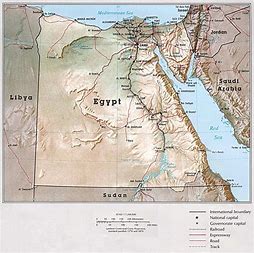Egypt is currently the second largest economy in Africa. This is manned by the third largest population in the continent. The economy is largely dependent on agriculture, communications and construction. Egypt also has a robust manufacturing sector that is comparatively better than many in Africa and the Greater Middle East.
According to the African Development Bank (ADB) real GDP growth driven by the aforementioned drivers was estimated at 6.6% in the 2021/22 year. Fiscal deficit fell from 6.9 percent to 5.8 during the same period. It had also improved marginally in respect of its public dept. The bank states that in 2021 the country increased its revenue from $4.9 billion to $10.7 billion—mainly from tourism. Unemployment stood at 7.2% by the close of 2022.
As of July 2023, the country’s economic forecast in 2023 was expected to slow down. This is characterized by higher inflation and a weaker currency. The Ukraine War has been a major factor driving food inflation upward. Despite some improvement with the country’s debt problem, it still remains a major burden for economic planners in Cairo.
Security Issues:
According to Global Firepower, the country has for many years had the strongest military on the continent. In the mid-20th century, the country’s security was heavily tilted to West Asia and Palestine. It fought against Israel in several wars.
By September 1978 Egypt had signed a peace deal with Israel. Significantly, the Camp David Accords stabilised Egypt’s foreign policy in respect of the Middle East and the United States. In recent times Egypt’s security is mainly occupied with violent extremism in the Sinai Peninsula; factional frictions in Libya; and its economic security. The last had serious ramifications over a decade ago during the Arab spring.
Also securitized by Cairo is the Nile River dispute that involves Ethiopia and Sudan. In recent times Egypt and Ethiopia, the foremost belligerents in the dispute have agreed to find a diplomatic solution to the crisis. This has been a departure from the threat of the use of force.
Verdict:
Despite the economic challenges faced by Egypt and which is likely to be around in the short to medium term, the country has brighter prospects in the long-term. With one of the best educational systems on the continent and the Middle East, a young and growing population, efficient agriculture and robust domestic consumption for local industries, Egypt is a country worth the attention of any investor looking to put money in Africa.
Egypt’s proximity to the diversifying economies of the Middle East and Eastern Europe further grants it some advantages. Risk is in the lower levels.
